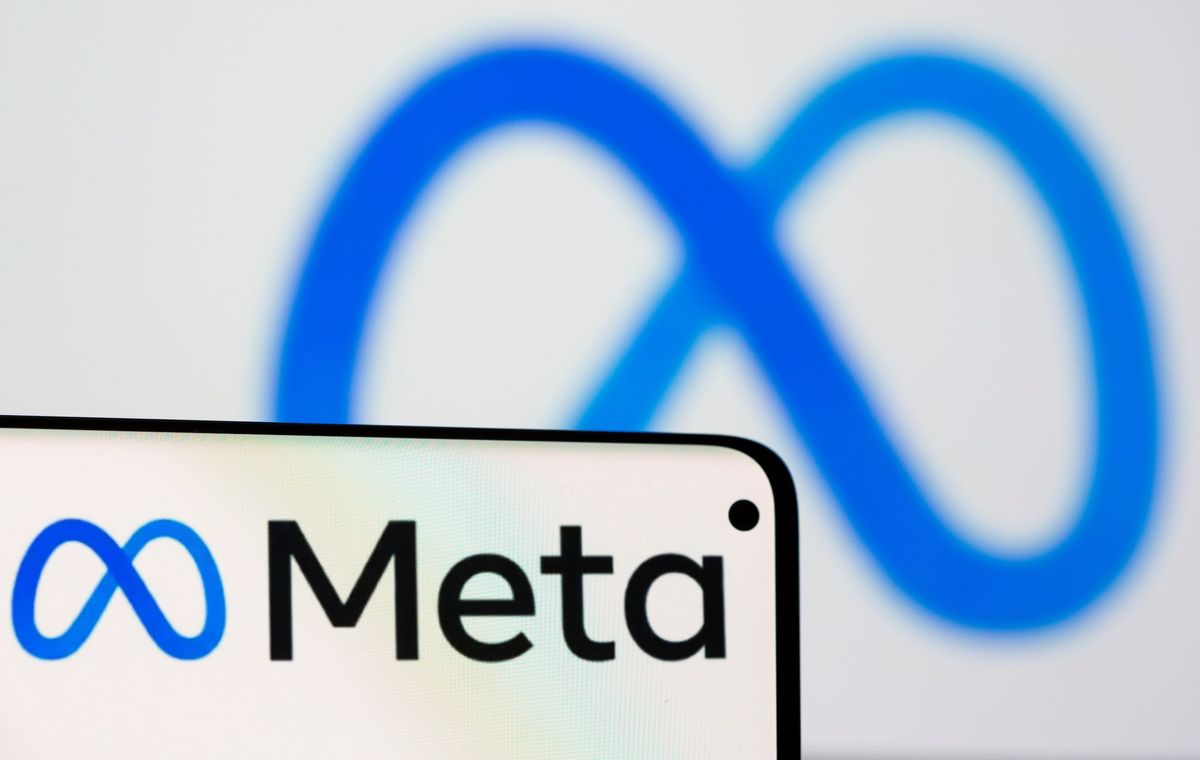What does Facebook’s rebrand to Meta mean for its global future?

A few minutes every morning is all you need.
Stay up to date on the world's Headlines and Human Stories. It's fun, it's factual, it's fluff-free.
“China’s crackdown on foreign but even more so domestic tech companies is a warning sign for big tech investors as well as companies to stay away from that market for the time being.”
What’s going on with Facebook’s rebrand, again?

- Facebook Inc., the parent company of the Facebook platform, Instagram and WhatsApp, is rebranding itself to Meta Platforms Inc. (Meta).
- But, just to be clear, Facebook, the social media platform, will still be called Facebook. Its parent company is the part that is rebranding. You can think of it kind of like Alphabet Inc. and Google.
- Many suspect that there are big reasons for this move: One, between a whistleblower and thousands of leaked documents, the Facebook brand has been marred with scandals over the past few months, and some people think that a rebrand is an attempt to distance the company from the scandals and regulatory scrutiny.
- But secondly, according to Chief Executive Officer Mark Zuckerberg, the rebrand is meant to make clear that Facebook is working toward fleshing out its own metaverse.
What’s a metaverse?
- Let’s start by fleshing out the differences between virtual reality (VR) and augmented reality (AR). Augmented reality looks to add digital elements to your physical reality, for example, Pokemon Go. On the other hand, virtual reality completely immerses you in a different reality, shutting off the real world.
- So, with Facebook’s metaverse, if you’ve ever seen that story “Ready Player One,” it’s a lot like the Oasis.
- Basically, the metaverse is a world accessible through VR, where, in theory, you can live life and interact with others, all without leaving your headset.
- There’s also an AR component to this Facebook metaverse as well as a whole function of online currency (like Bitcoin) and more.
- According to Meta, “The defining quality of the metaverse will be a feeling of presence — like you are right there with another person or in another place.”
- The announcement adds, “In the metaverse, you’ll be able to do almost anything you can imagine — get together with friends and family, work, learn, play, shop, create — as well as completely new experiences that don’t really fit how we think about computers or phones today.”
Does this change Facebook’s business model?
- Basically, at least in the eyes of those at Meta, this metaverse is the next phase of the internet.
- Speaking to TMS, according to Niclas Johansson, CEO and co-founder of immersivt.se, the largest VR/AR website in the Nordic countries, Facebook sees this as “a chance for them to escape from the dependency on the smartphone incumbents … and build a more direct customer relationship.”
- You see, right now, Facebook has to deal with the gatekeepers of hardware and software companies, namely Apple Inc. and its app store and Google Inc., which owns Android, and the Google Play store.
- This means that pretty much every mobile user has to go through Apple or Google to actually get to Facebook, which means that Facebook is subject to the regulations and fees from these two companies.
- But as you can imagine, Facebook doesn’t like this dependency too much. So, with this change, they can essentially stop relying on these gatekeepers.
- Johansson also said, “Facebook, Instagram and WhatsApp already have global audiences, which will all be leveraged to promote VR/AR hardware sales as well as metaverse content and services.”
What does this mean for Facebook on the global stage?
- Well, according to Johansson, for places like China, which have strict laws about data collection and tend to crack down on big tech companies, Facebook’s pivot doesn’t change much.
- “China’s crackdown on foreign but even more so domestic tech companies is a warning sign for big tech investors as well as companies to stay away from that market for the time being,” he said.
- But Johansson also said that there’s another market that Facebook may have some added access to moving forward, and that is Germany.
- “Their privacy/integrity laws –—an unusually stringent interpretation of EU-wide GDPR regulations –—have resulted in Facebook not being able to sell their Oculus VR devices in Germany,” he said.
- Before now, Facebook has required that you connect your Oculus device to your Facebook account, which violated German privacy laws.
- But Johansson said that Facebook has promised to remove this requirement by next year, meaning the German market may soon open up to the tech giant.
What are some of the criticisms?
- Some entrepreneurs have already been in the metaverse space for years and say that Facebook has essentially just inserted themselves into the narrative.
- For example, Artur Sychov founded metaverse Somnium Space back in 2017 and spends around five hours a day alongside 1,000-2,000 other daily users in the space.
- He explained that Zuckerburg’s announcement was “rushed," and it felt as if that Facebook was “kind of like trying to insert themselves into the metaverse narrative ….”
- Another criticism is that Facebook’s Meta will likely be centralized, meaning that the content you produce is content that will likely belong to Facebook and its new world and probably can’t be transferred elsewhere.
- This is particularly problematic for existing metaverse users who are warier about who controls their content.
What’s next?
- According to Johansson, Facebook is making a bet. “Their big bet is that people globally, on a 5-10 year horizon, will start using VR headsets and AR glasses instead of their phones and interact with the internet in new immersive and intuitive ways.”
- There are two parts to this bet. First, the company is betting that people move to and adopt VR and AR, and second, they’re betting that a big part of the shift will happen over the next decade.
- So really, the thing to be watching for is whether or not people make this shift and move in this direction.
- The other thing to watch is whether or not this shift somewhat frees Facebook from its current regulatory battles.
You drive the stories at TMS. DM us which headline you want us to explain, or email us.




Comments ()